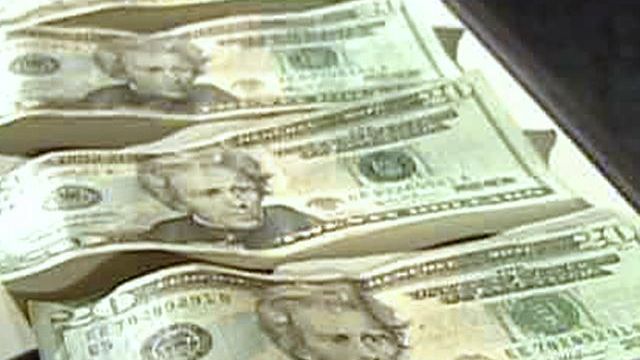Budget-cutting can add up to big savings
In these tough economic times, does your money fly out as fast it comes in? Experts say finding ways to save might require changing the way you think.
Posted — UpdatedIn these tough economic times, does your money fly out as fast it comes in? Experts say finding ways to save might require changing the way you think.
To start tightening your budget, you have to understand the difference between necessities and luxuries, Rebekah O'Connell, a credit counselor with Triangle Family Services, said.
"Rethink what you're doing," O'Connell said.
For example, electricity is a necessity; cable or satellite television is a luxury.
"You could shut it off completely and be OK and get up and go to work tomorrow," O'Connell said.
Or switch to basic cable. That service costs about $12 a month – easily saving some people $50 to more than $100 a month.
Phone service is a necessity, but unnecessary features – text-messaging, three-way calling, call-forwarding, voicemail and call-waiting – are luxuries.
A basic landline service often costs less than $20 per month, or you could cancel your landline if you have a cell phone. Limit expenses with your cell phone as well; a prepaid phone can cost just $20 for three months of use.
"You can have a much less expensive phone if you're willing to make the change and not live on your cell phone, not text your friends every day all day," O'Connell said.
Cars can be a necessity, but a new or fancy car counts as a luxury.
"Cars are tools. Get the ego out of it. They're supposed to get you from one place to another," O'Connell said. "Keep it maintained. Keep it going. Keep it running as long as possible."
Clothes are a necessity, but excessive shopping isn't.
Go shopping in your closet first. Look for things you forgot you had and, more importantly, assess what you really need. Then shop only for those items.
"Don't drift over into the summer sales, looking at leftover bathing suits," O'Connell said. "That's not why you're there."
Personal care is a necessity, but getting your hair done and fake nails every week is a luxury.
"When we start counting, they'll spending $200 and $300 a month on personal care," O'Connell said. "Try doing without. I've probably convinced a number of people over time to give up the fake nails."
People often end up spending more than they know on food and eating out.
The average cost of eating lunch out is $6.50 a day, $33 a week, more than $130 a month. Those fancy coffees and trips to the vending machine can add up to more than $50 a month.
By cooking dinner at home, the average American could save more than $200 a month.
"It just requires thinking about it differently," O'Connell said.
• Credits
Copyright 2024 by Capitol Broadcasting Company. All rights reserved. This material may not be published, broadcast, rewritten or redistributed.





